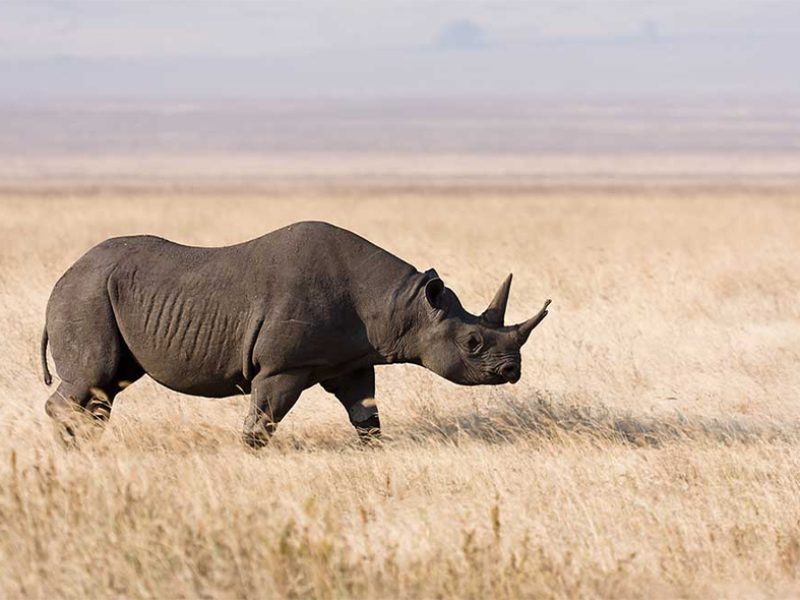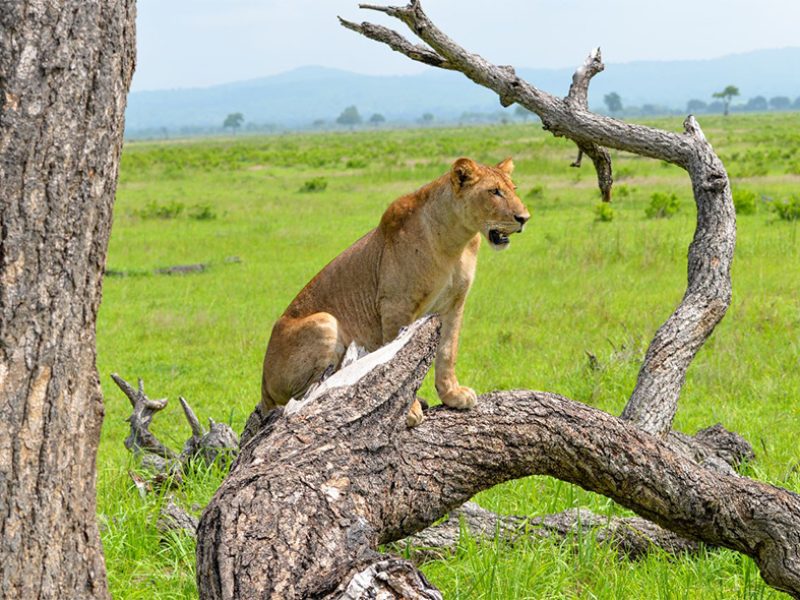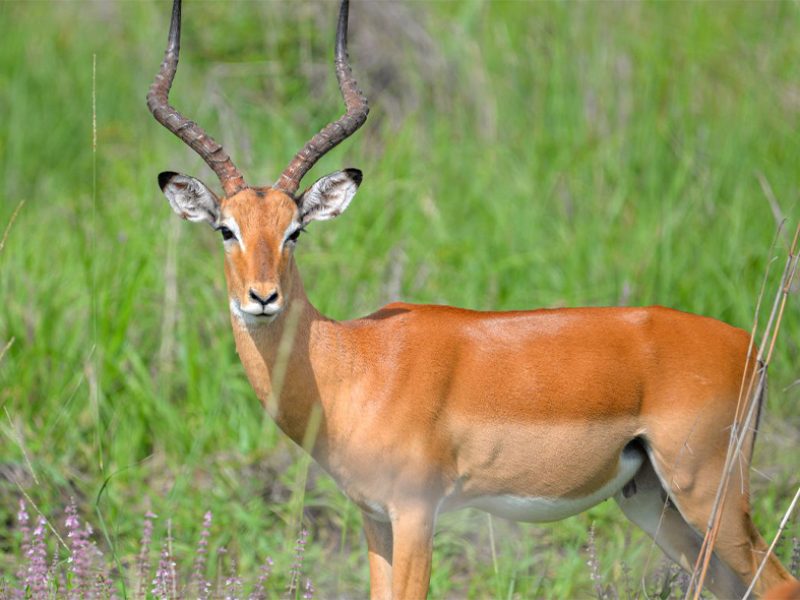Arusha National Park
Arusha National Park
It’s a gorgeous, almost magical place – Arusha National Park, northeast of Arusha town and just 50 kilometres from the international Kilimanjaro Airport. Black-and-white Colobus monkeys jump through the treetops with ease, elegant giraffes wander across the open savannah, and beautiful flamingos stand tall in the shallow Momella Lakes while Mt Meru calmly overlooks the goings-on.
Compared to Tarangire or Serengeti National Park, the Arusha National Park is very small. But on this comparably small area – which is still bigger than 77,000 football (soccer) fields! – you will find a surprisingly large diversity of vegetation supporting an equally large diversity of wildlife. From Mt Meru, the fifth highest mountain in Africa, in the West, the Momella Lakes in the North-East and the Ngurdoto Crater in the South-West you can experience mountainous forest, open savannah and grass land as well as a lush rain forest.
What to see in Arusha National Park
Passing the “small Serengeti” during a game drive, you are likely to spot peaceful herds of buffaloes, shy bushbucks on the edge of the forest as well as warthogs and zebras. The area is also home to a high concentration of giraffes. Heading towards the Ngurdoto Crater you will soon find yourself in a lush rainforest – a great place to spot the athletic black and white colobus monkey as well as the elegant mitis monkey. The Ngurdoto Crater is basically a smaller version of the Ngorongoro Crater and has a diameter of about 3 km. With a bit of luck, you might even spot buffaloes in the swamps on the crater floor.
On the way towards the Momella Lakes, visitors are in for a treat as common waterbucks and reedbucks love to hang around the lake shore. An array of water birds like cormorants, kingfishers and beautiful flamingos are also often spotted.
Arusha National Park is also home to about a handful of African elephants but due to their constant movement they are hardly ever spotted. The same goes for leopards which roam the vast foggy forests of Mt Meru.
What to do in Arusha National Park
The most common activity here are classic game drives in 4×4 safari vehicles. Your experienced local guide knows the best areas to spot wildlife and will safely navigate the terrain. It is a great place for a day trip or the start of your longer safari.
But there is more: If you want to get active, you can go on walking safaris in Arusha National Park. There are very few places in Tanzania’s protected national parks which allow you to walk amongst the wild on foot. But the low number of predators in Arusha National Park makes it possible.
A walking safari is a great opportunity for anyone wanting to get up close to wildlife and birdlife, have a closer look at the moss-covered trees and take in the sounds and smells and colours around them. Most common sightings whilst on a walking safari include buffaloes, warthogs, giraffes and a variety of birds such as the silvery cheeked hornbill, little bee-eater and the occasional long crested eagle. The walk takes visitors to the refreshing Tululusia waterfalls and back to the Momella gate.
The Momella Lakes
The Momella Lakes in the north-east are shallow alkaline lakes with different salt levels. An ideal habitat for flamingos! Depending on the season and the water levels, you can spot large flocks of these elegant birds here. On the small Momella Lake, you can also go on a canoe trip. These scenic and peaceful trips take about 2.5 to 3 hours and take you past antelope and buffalo herds grazing along the shore. You will be accompanied by an experience guide.
Arusha National Park truly has such a lot to offer and dazzles with a perfect mix of flora and fauna and diversified landscapes.



Best time to go to Arusha National Park
Arusha National Park is a year-round destination. But as many places in Tanzania, the best time to spot wildlife is during the dry season from June to October. Vegetation is more scarce allowing you to spot wildlife more easily. This is also the best time to go on a walking safari. During the green season the park is literally very green – tall grass and foliage make it trickier to spot wildlife. That being said, the rainy green season does turn the park into a beautiful and lush jewel making for a very scenic visit. It is also a great time to see Tanzania’s birdlife.

